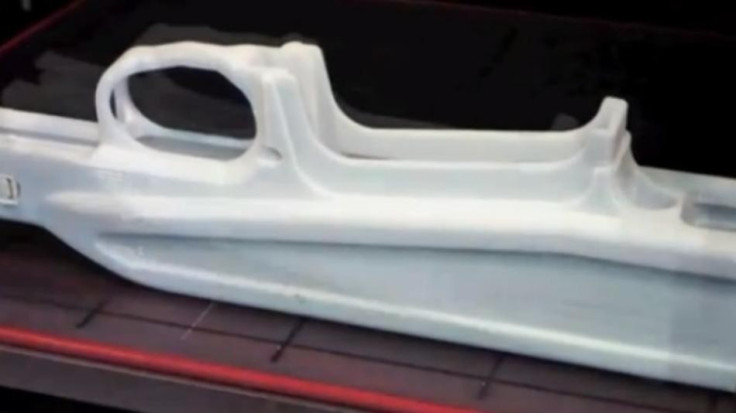3D Printing Search Engine Lets Users Print Their Own Guns and Drugs
A funding campaign has been launched for a website that would allow users to freely upload 3D printing blueprints, including ones for weapon parts and other prohibited goods.

The site, which is to be known as Defcad, is seeking $100,000 (£67,000) of crowd-funding. Speaking in a video, Defcad founder Cody Wilson, an American law student, said Defcad would be "the world's first unblockable, open-source search engine for all 3D printable parts."
"Can 3D printing be subversive?" Wilson added. "If it can, it will be because it allows us to make the important things. Not trinkets, not lawn gnomes. But things that institutions and industries have an interest in keeping from us, things like access, medical devices, drugs, goods; guns. Defcad will provide access with a view to these things."
The video also shows images of a prototype version of Defcad, advertising download links for blueprints of parts for an AR-15 assault rifle and unmanned drone as used by the US military.
3D printing blueprints could also be used to synthesize drugs. In August, 2012, scientists at the University of Glasgow took base chemical constituents and mixed them together into finished pharmaceuticals using a 3D printer.
"We are showing that you can take chemical constituents, pass them through a printer and create what is effectively a chemical synthesiser in which the reaction occurs allowing you to get out something different at the end," Dr Mark Symes told the BBC.
"It's almost like a layer cake ," said Prof Lee Cronin, who pioneered the experiment. "You print the last reactionary agent first and then build other chemical layers above, finally adding a liquid at the top. The liquid goes to layer one making a new molecule which goes to the next layer creating another and so on until at the bottom you get your prescription drug out."
Defense Distributed
In 2012, Wilson launched Defense Distributed, an online project that aimed to create a gun entirely from 3D printable parts. It was met with controversy in the United States, leading 3D printing company MakerBot to withdraw gun blueprints from its site and printer manufacturer Stratasys to refuse to sell its 3D printers to Wilson or Defense Distributed.
Defcad is also likely to face controversy, as its business model of freely supplying blueprints for patented goods will run foul of US copyright law. Speaking to the BBC, Lorna Caddy of law firm Taylor Wessing said:
"Supplying consumers with blueprints to print products designed by third parties is a business model fraught with risk. Many of those products will be protected by intellectual property rights, such as design law. Owners of those rights could assert them in the courts to prevent their designs being further distributed and to seek financial compensation."
© Copyright IBTimes 2025. All rights reserved.






















